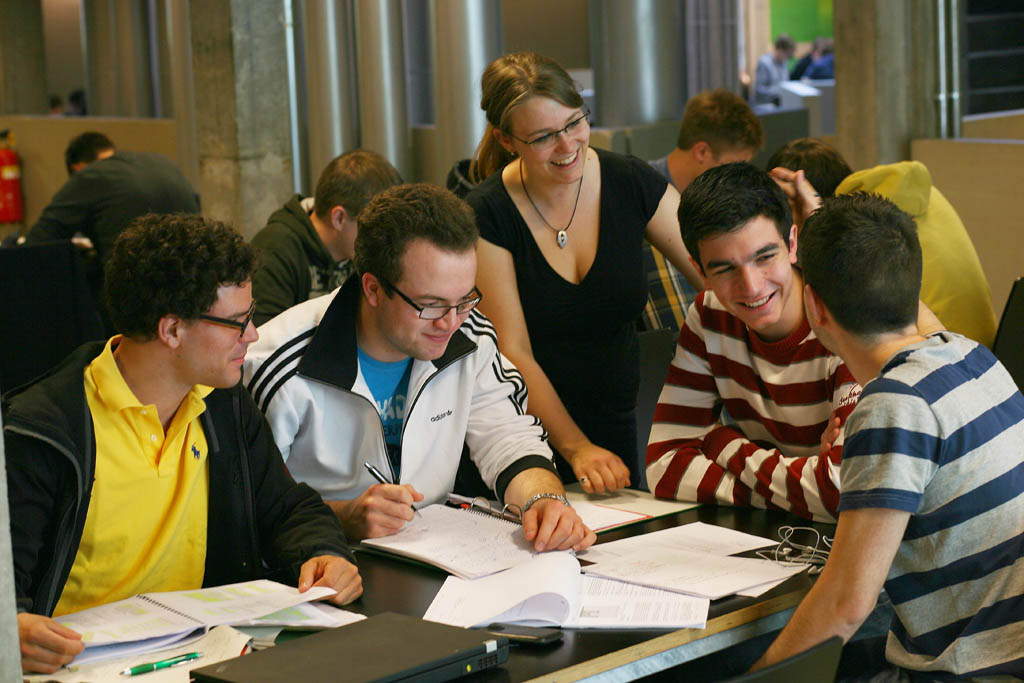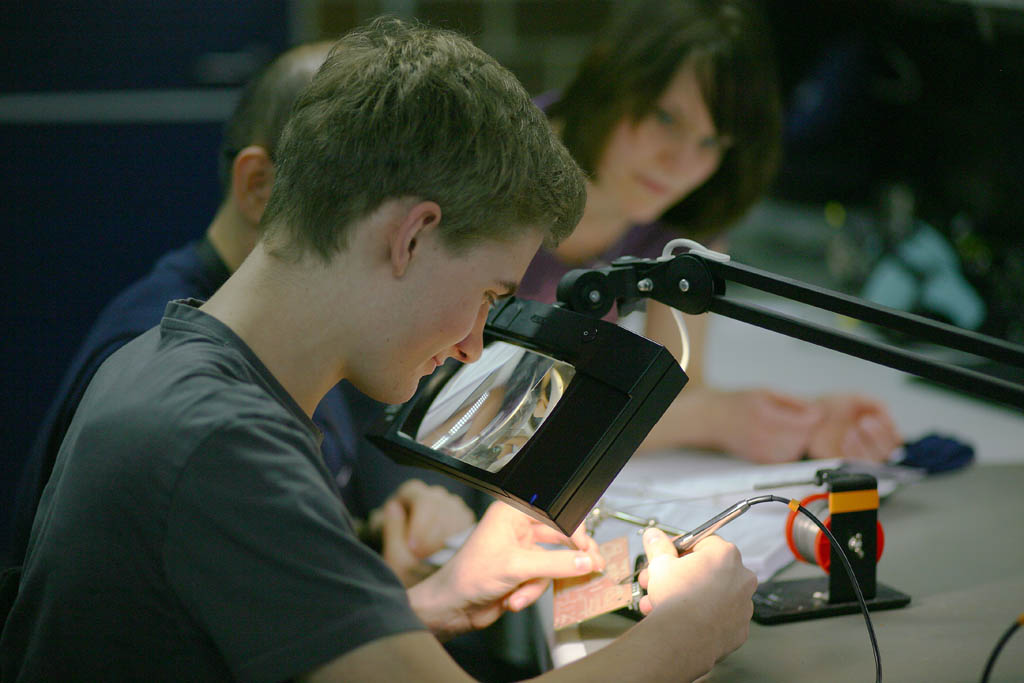History, Facts and Figures
Back in the 19th century (1882) the first lecture on Electrical Engineering was held in Stuttgart. In the middle of the 60ties of the last century, Computer Science took off. The then emerging two faculties for Electrical Engineering and Information Technology and Computer Science have been merged to form the new faculty for Computer Science, Electrical Engineering and Information Technology (IEI) on October 1st, 2002.
IEI today can be characterized by the following figures:
IEI today can be characterized by the following figures:
- Number of Students: 3500
- Number of Professors: 49
- Number of ass. Professors/members of scientific staff: 340
- 23 Institutes
- 4 Bachelor Programs leading to a B.Sc.
- 8 Master Programs leading to a M.Sc.
- partner in 6 academic programs from other faculties and universities
- about 35 PhD/a
- app. 220 lecture courses, 60 of which are in English language
- 3 large buildings (Pfaffenwaldring 47, ETI I and ETI II and Universitaetsstrasse 38) with lecture halls, labs and research facilities, computer pools and staff offices, all adjacent, located at the Vaihingen Campus of the University of Stuttgart.
Research
The faculty with its 23 institutes plays a leading role in the research arena. Funding of these research activities is from the Federal State of Baden-Wuerttemberg, European and national research programs and the industry. About 50% of the scientific staff is funded by industry-related projects. This gives the faculty a pole position in the national competition for industry projects.
The main focus of research of the faculty concentrates on 10 research areas:
- Nano-, opto- and power electronics
- Autonomous and interactive systems
- Simulation technology
- Language and knowledge processing
- Embedded systems, steering technology, control engineering
- Complex information systems
- Communication and mobility
- Reliable, fault-tolerant systems
- Renewable energy and intelligent energy management
- Electromobility
Conducting research is supported by Europe-wide unique facilities comprising
- clean roomsforworking on siliciumformicro-, macro- und optoelectronics, strukturesfromnm(transistors) tom (flat screens, solar panels)
- Europe-wideuniquelaboratoryfordisplaytechnology
- Europe-wideuniquepowerwall
- VR-lecture-roomwith 6 m x 2 m stereoprojectorforvirtual-reality demonstrations
- Robotics laboratory – second in RoboCup world championships
- High voltage laboratory



